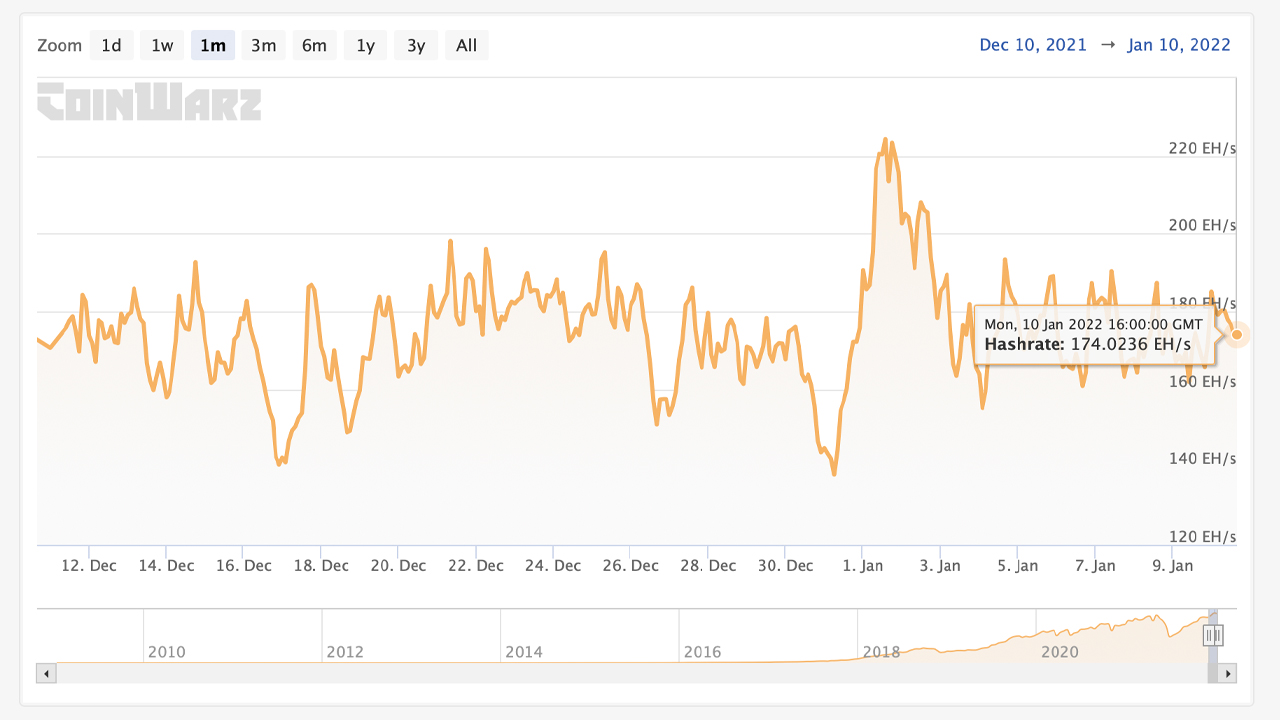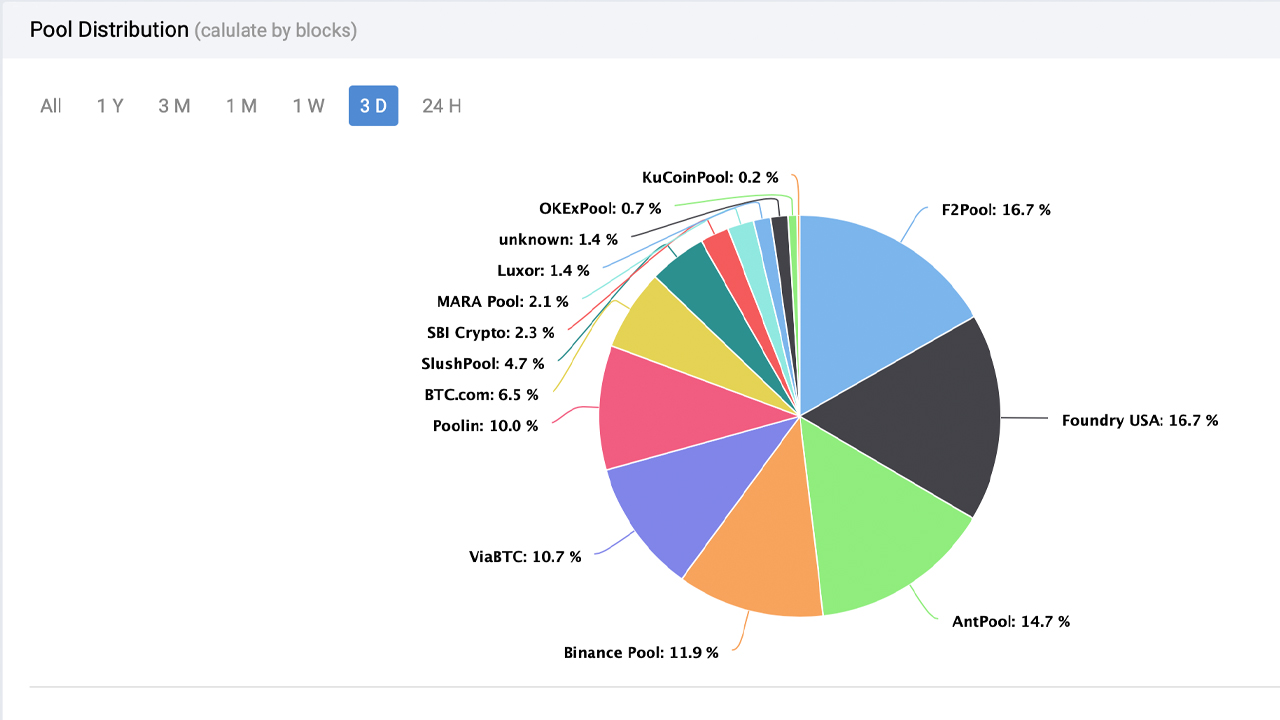
Bitcoin’s price has been losing steadily since the November 10th, 2021 peak of $69K/unit. During the last two weeks, bitcoin has shed more than 19% in value, and the network’s hashrate has dropped from over 200 exahash per second (EH/s) to 174 EH/s losing roughly 15% in ten days.
Civil Unrest in Kazakhstan Leads to Hashrate Loss Speculation, Kazakhstan’s Bitcoin Miners Say Issues Did Not Affect Them
This week the civil unrest in Kazakhstan caused a lot of people to speculate on whether or not it would affect Bitcoin’s global hashrate. This assumption arises because the latest estimates by the Cambridge Centre for Alternative Finance are that Kazakhstan is responsible for around 18% of global hashrate. Looking at the 30-day chart for Bitcoin’s (BTC) hashrate indicates that the protocol’s hashpower lost roughly 15% in ten days.

Reports stemming from Kazakhstan indicate that the civil unrest has stabilized and the country’s Data Center Industry and Blockchain Association of Kazakhstan (NABCD), said the issues did not affect digital currency miners. There are a few problems that could have affected bitcoin miners in the past week, but they’re not related to the problem in Kazakhstan.
Bitcoin’s Low Price and Higher Difficulty Puts Pressure on Bitcoin Miners
Although bitcoin (BTC), was being traded for $46.5K per piece five days prior, the value of this currency has dropped over 10%. Over a month ago the top performing mining machine with over 100 terahash/second (TH/s), would receive $25-30 per day per machine and an electricity rate $0.12 per kilowatthour. The same electricity consumption is used to produce the same amount of mining rigs today, which will generate $14.87 daily. Bitcoin’s price fall could have an impact on the hashrate, and it could also be the reason why it dropped 15%
The last increase in mining difficulty could also explain 15% of the decline in hashrate. The last increase took place on January 8, 2022, as the network’s mining difficulty jumped 0.41 % higher. While that may not be that much of an increase, the difficulty is awfully close to the metric’s all-time high, and the network has seen three consecutive increases in a row. It is predicted that the mining difficulty will rise by 0.677% within 11 days.

Currently, pool distribution statistics over the last three days show F2pool and Foundry USA are the world’s top mining pool today, as both pools have 16.74% of the global hashrate each or 29.03 EH/s per pool. 13 pools have been identified that are dedicated to SHA256 ishrate for the BTC chain. The unknown hashrate, which represents 1.40% (or 2.42 EH/s), accounts for 1.40%. Even with the latest hashrate decline, December 31 through today has seen a 26.08% increase in hashrate since the beginning of the year.
What do you think about Bitcoin’s hashrate losing 15% in the last ten days? Comment below and let us know how you feel about the subject.
Images Credits: Shutterstock, Pixabay, Wiki Commons, Coinwarz, Btc.com,
DisclaimerThis article serves informational purposes. It does not constitute an offer, solicitation, or recommendation of any company, products or services. Bitcoin.com is not a provider of investment, tax, legal or accounting advice. The author and the company are not responsible for any loss or damage caused by the content or use of any goods, services, or information mentioned in the article.